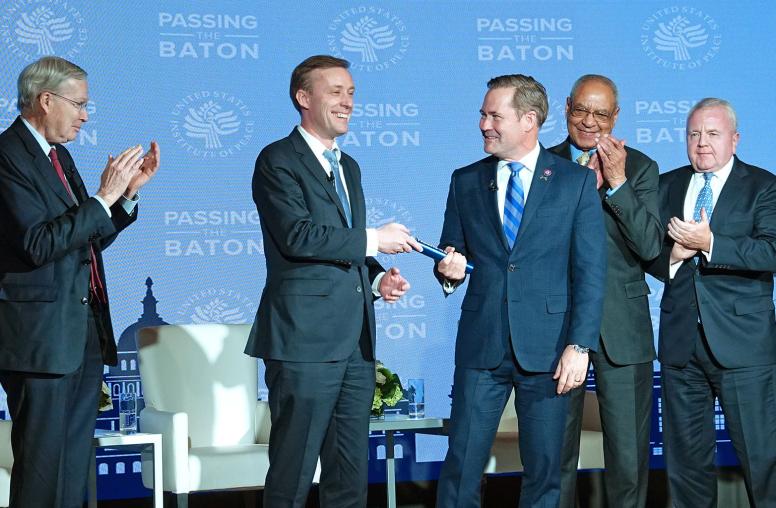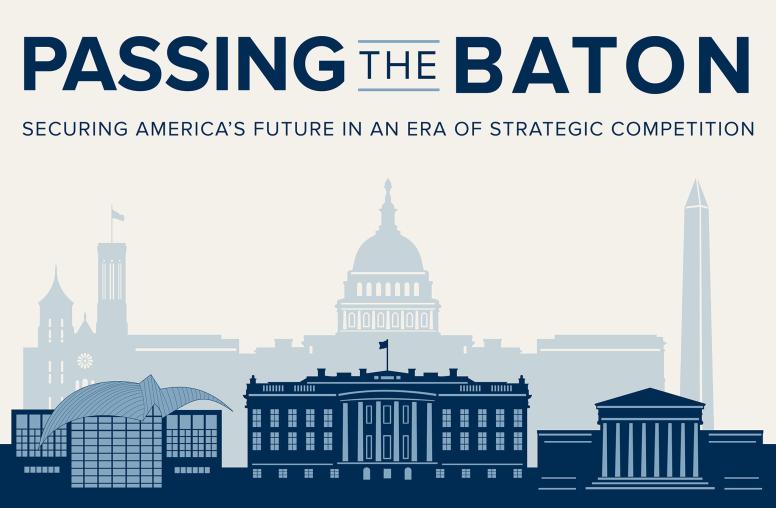Bringing Down Saddam: A Strategy for Nonviolent Regime Change Is Needed
Newsbyte looks at the challenges ahead for Macedonia.
WASHINGTON—While the Bush administration presses Iraq to end its weapons-of-mass-destruction programs and threatens to use force if Saddam Hussein fails to comply with UN Security Council resolutions, it is important also to explore means of bringing about regime change in Baghdad by nonviolent means. Even if such efforts fail to bring down Hussein, they may help to shorten war or reduce casualties. If successful, they would improve the prospects for a democratic regime post-Hussein.
To examine the problems and prospects of disarming Iraq of its weapons of mass destruction (WMD), the United States Institute of Peace held a briefing for senior congressional staff on November 20. The briefing was sponsored by Senators Tom Harkin of Iowa and Arlen Specter of Pennsylvania.
Sanctions need better targeting
The UN's Oil for Food program, which is supposed to allow Iraq to sell oil in order to purchase goods that will benefit the Iraqi people, in fact helps the regime, which receives kickbacks from those who buy the oil, steers sales towards countries that will be helpful to Iraq in the UN and elsewhere, and distributes the goods purchased in ways that enhance its power and influence within Iraq. Moreover, large quantities of oil are being exported through Jordan, Syria, and Turkey outside the Oil for Food program, putting additional financial resources in the hands of the regime. In the meanwhile, the sanctions policy provides Hussein with an excuse for the suffering of the Iraqi people. The "smart" sanctions do not live up to their name.
Sanctions should be targeted more precisely against the top people in the regime. It is particularly important to track and freeze their assets held abroad and to prevent them from traveling freely outside Iraq, as was done in the case of the Milosevic regime in Yugoslavia. A travel ban on Hussein's inner circle of 100-200 people would make it difficult for them to cut deals abroad, which require their personal presence. It would also send a strong signal to the people below them in the hierarchy that the international community is serious about bringing down the regime. Incredible as it may seem, even today in Iraq Hussein is able to suggest that the United States backs him, or at least that it will settle for less than complete regime change. This discourages those who might otherwise move against him.
Enabling nonviolent resistance
The recent public protests in Baghdad in the aftermath of the prisoner release—as well as many less internationally visible actions by ordinary people—suggest that Iraqis can and will resist the regime when the opportunity arises, despite Hussein 's brutality. Foreigners or even expatriates cannot and should not decide when and where such resistance will occur or its ultimate objective, but they can send signals of encouragement and try to provide the means required to facilitate such protests. This should include signals sent through the media as well as distribution of means of enabling people to communicate with each other. Dissent should at least initially be dispersed and take relatively low risk forms. Grassroots efforts to improve living conditions, schooling, and the environment merit encouragement.
It is also important to create safe havens to which Iraqis can defect from the regime, as well as to signal clearly to members of Hussein's Ba'ath party that only the top leadership will be held responsible for the crimes of the regime. There are rumors that Ba'athists are turning in party membership cards. This is to be encouraged by making it clear that violent, extra-legal revenge will not be allowed after Hussein's fall, and that those individuals who have capabilities needed in a future democratic Iraq will find a place if they have not committed crimes and have abandoned the regime. Nonviolent resistance works by peeling away from a regime its least loyal cadres, depriving the dictator of the automatic allegiance that enables a small number of people to rule over many.
An already weakened Saddam is vulnerable to civic action
While force may still be needed to dislodge Hussein—and the Bush administration is unquestionably committed to using it if necessary—his regime has already weakened and he may well accept UN inspections. This may open a window of some months before war, a window during which he will be vulnerable to civic action. Even demonstrations against the inspections, or other patriotic manifestations, could signal dissatisfaction with the regime, as would efforts by ordinary people to present evidence of human rights violations either to the UN inspectors or to the nongovernmental organizations that should try to flood into Iraq once inspectors are admitted. It is critical that during this pre-conflict period the Western media learn to recognize the signs of popular discontent and focus attention on them. The New York Times recognized the significance of the recent prison demonstrations, but other newspapers did not.
Those who would resist Hussein from inside Iraq need to challenge the regime where it is weakest and weave tactical actions that signal dissent into a strategy that leaves him and his immediate cronies isolated from the vast bulk of the population, which stands to gain from regime change. The international community cannot tell Iraqis how to do this, but it should be prepared to support their efforts. Such a strategy would include:
- Sanctioning high regime officials with financial, business and travel restrictions,
- Providing a safe haven and facilitating defections from the regime,
- Projecting through the media a beneficial end state for the mass of Iraqis, and
- Providing technology, know-how and other assistance to enable civic resistance.
The views summarized here reflect the discussion at the meeting; they do not represent formal positions taken by the Institute, which does not advocate specific policies.



